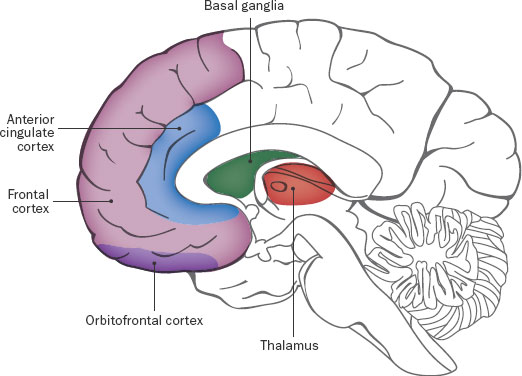
Obsessive-Compulsive Disorder (OCD) – Obsessive Compulsive Neurosis (OCN)
Obsessive-Compulsive Disorder (OCD) is a chronic mental health condition where a person experiences uncontrollable, recurring thoughts (obsessions) and repetitive behaviors (compulsions). These actions are performed to reduce anxiety, but they can interfere with daily life.
Causes of OCD
Genetic Factors – Family history increases the risk
Brain Chemistry Imbalance – Abnormal serotonin levels contribute to OCD symptoms.
Stress & Trauma – Emotional distress or traumatic experiences can trigger or worsen OCD.
Personality Traits – Perfectionism, high anxiety, and excessive worry may lead to OCD.
Infections – In some cases, streptococcal infections (PANDAS syndrome) are linked to OCD in children.
Symptoms of OCD
Obsessions (Unwanted Thoughts)
- Fear of contamination (excessive handwashing, fear of dirt or germs).
- Repeated doubts (checking doors, appliances, locks).
- Need for order and symmetry (arranging objects in a precise way).
- Intrusive thoughts about harming oneself or others.
Compulsions (Repetitive Actions)
- Excessive cleaning and washing.
- Checking things repeatedly (stove, locks, light switches).
- Counting, tapping, or repeating words to reduce anxiety.
- Hoarding unnecessary objects.
Homeopathic Treatment for OCD
Homeopathy addresses the root cause of OCD by balancing the nervous system and reducing anxiety. Some effective remedies include:
- Arsenicum Album – For extreme cleanliness, anxiety, and perfectionism.
- Natrum Muriaticum – Helps with deep-seated grief, emotional suppression, and compulsive behaviors.
- Nux Vomica – For irritability, impatience, and workaholic tendencies.
- Silicea – Beneficial for individuals with a fear of germs and contamination.
- Lycopodium – Helps those who suffer from self-doubt and fear of failure.
Natural Ways to Manage OCD
- Practice Mindfulness & Meditation – Helps control obsessive thoughts.
- Cognitive Behavioral Therapy (CBT) – Exposure and Response Prevention (ERP) therapy is highly effective.
- Regular Exercise – Reduces stress and improves serotonin levels.
- Balanced Diet – Foods rich in omega-3, magnesium, and vitamin B-complex support brain function.
- Adequate Sleep – Sleep deprivation can worsen OCD symptoms.
Conclusion
OCD is manageable with the right approach, including homeopathy, therapy, and lifestyle modifications. Addressing the root causes can lead to significant improvement and help regain control over daily life.

